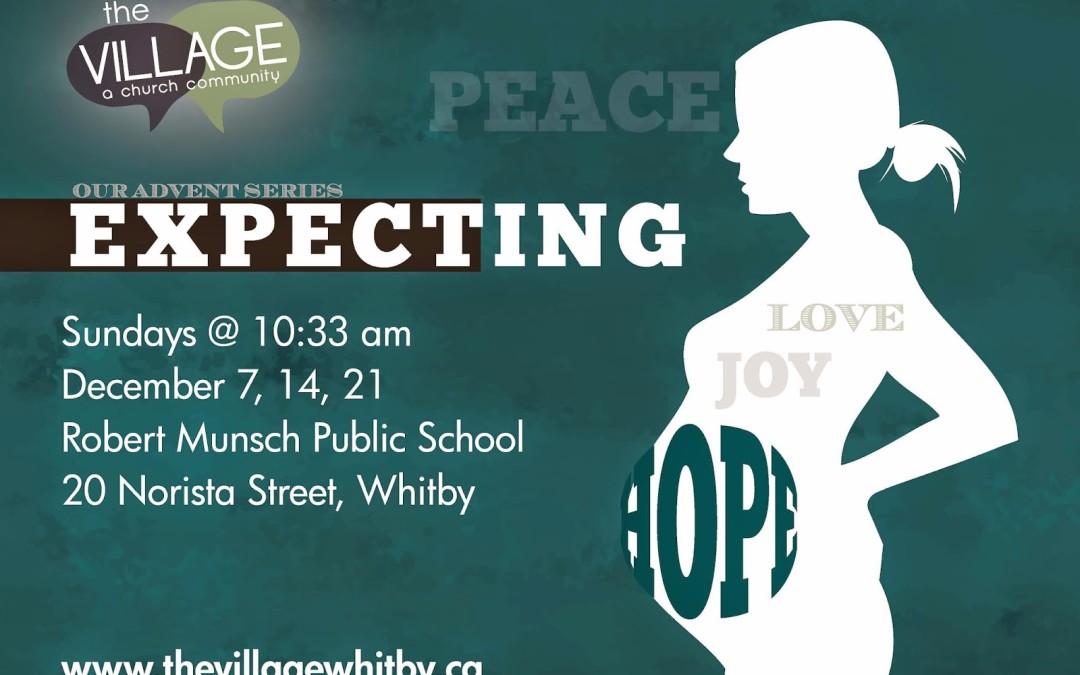It’s the second week of December and we’ve officially started the Christmas rush, full of shopping lists, too many bills, no parking, busy schedules, etc. As wonderful as Christmas is, is it possible that we’ve made it more or less than what it really is?
As we lead up to Christmas, we’ll be looking at what the Advent season takes us back to, a season of expectancy. The Christmas story, found in the gospels, is the beginning of Jesus life on earth, but also the end of a long period of waiting. People in that story were waiting for a Messiah, for forgiveness of sins, for a nations coming of age. Advent is a journey through those same feelings of expectancy; the waiting for a much anticipated Saviour.
If we can take a moment, before the rush, to maybe look at the false expectations we’ve created or built into this season.
Seinfeld’s video may not be seasonal or about Christmas, but it sure does speak to the false expectations we place on ourselves at Christmas.
Christmas seems to always have two stories vying for position; the question is which one will make it to the top. I don’t just mean Santa vs Jesus in a battle royal. As fun as that sounds, it’s a little more that that. The biblical Christmas story is based in a context that was bound for opposition. King Herod was appointed by Rome to rule Jerusalem. He was a cruel and evil leader. When he got wind of Jesus and began to do the math, he realized that this Jesus, even though just a baby, was not good for business. So much so that he ordered all first born boys in Bethlehem to be killed. Jesus avoided this by being brought to Egypt before this incident. The opposition starts in Matthew 2:1-3. This is the cultural context that Jesus was born into. We may view Jesus as the main story line, but Herod had other plans in mind. Herod was about violence, perverse power, cruelty, control, etc. Jesus was going to be about mercy, justice, love, peace, and a power that would be connected to humility.
This begs the question, what stories compete with Christmas today? What story will win at the end of the day? These days…
Christmas competes with consumerism
Christmas competes with materialism
Christmas competes with a hurried life style
Christmas competes with budgeting
Christmas competes with selfishness
For all the wonderful expectations of Advent and Christmas, there are a few false ones:
– that we must spend more than we have
– that we should get more than we give
– that we must be totally spent by January 1
When it comes to the practical side of advent, let’s be careful of a couple of things…
1) Be careful not to SPEND MONEY you don’t have (or money that can be used better)!
The most used practice in December is that of consumption. Our exaggerated employment numbers in December and then high unemployment numbers in January are just one example. The average Canadian spends more than $1400 at Christmas. That’s not as alarming as the fact that 1/3 of Canadians go into debt for their purchases.
We haven’t figured out how to continue to be generous, without damaging our lives in the process. What’s worse is that we feed into this idea that Christmas has to be overboard. Of course this is a fine line. We want to be generous and give to those we love. But there has to be a way to balance it off and not find oneself in debt because of it. Perhaps we can start by letting people know that they don’t have to buy us anything. That we are truly content with what we have. That a modest and thoughtful gift is just enough.
Miroslav Volf recently said (in regards to the craze Black Friday), “how is it possible that all those who were grateful for what they have on Thursday, go out the next day and get so much more on Friday?”
Perhaps the best advice to not desire the false expectations of the season may come from Ann Voscamp who says,
“I don’t have to buy Christmas, I want Christmas to whisper Jesus”
“I don’t want to produce Christmas, I want to receive Christmas”
2) Be careful not to miss OPPORTUNITIES to be PRESENT in people’s lives!
Matthew 1:23 tells us that Jesus was given the name Emmanuel. This name is very important as it means, ‘God with us’. Whatever you think about Santa Clause (and remember the real St. Nicolaus was an amazing person and believer who helped many people), the one we hear about around this time of year is a drive by gift giver. Think about it, Santa drops in for a few minutes, doesn’t say hi, eats your cookies and takes off. Jesus – he came, moved in, went to school, got a job, sat down and ate dinner with friends and sinners alike. Jesus is the clearest picture of God (he is God) and shows us that God is not far away, but close. Matthew’s gospel reveals that this God is not only our Saviour, but he is with us.
In light of that story, how can we not give the most generous and authentic gifts to others – our presence. Being present in people’s lives is an extension of Jesus. Not only that, but it shows our world that we don’t buy into commercialized Christmas, but rather, we’re into the real essence of the story – Jesus being present with us, and us being present with others.
2 Stories…
What story will you attach yourself to this season. Herod’s story of selfishness and pride or Jesus’ story of mercy, peace, hope, joy and love? Will you let the false expectations of the season pull you in? Or will you be even more generous, but in a thoughtful and meaningful way, giving from what you have and what you’ve said aside.
If the Christmas story is about Jesus, then my only expectations should be what I’ve come to expect of him: forgiveness of sins, undeserved grace, peace beyond understanding, and boundless love. Out of that, I have lots to give. Share that story this Christmas!


